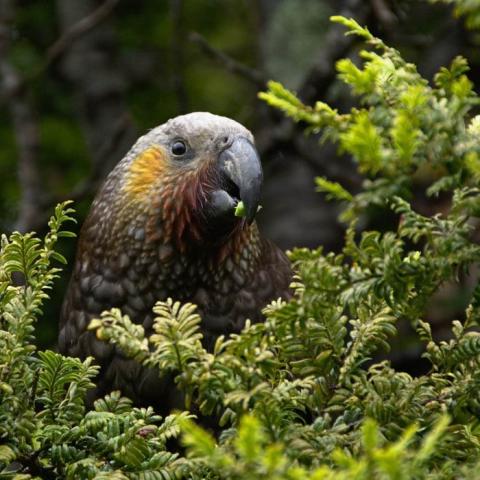Biodiversity Academy

Organised by YOUNGO and GYBN
Sessions will run every Saturday, 4 Nov through 02 Dec 2023, at 14.30 CET:
- 4th November
General Overview of the biodiversity, the two constituencies and the ongoing work
- 11th November
Understanding the Kunming-Montreal Biodiversity Framework
- 18th November
Best Practices and ways forward - Biodiversity on Land and Underwater
- 25th November
Biodiversity Financing Mechanisms : Nature-Based Solutions, Carbon Credits, and the Search for Sustainability
- 2nd December
Advocacy for Biodiversity: Fostering Social Collaborations and Wrapping Up the Academy
About YOUNGO
YOUNGO is the official children and youth constituency of the United Nations Framework Convention on Climate Change (UNFCCC). YOUNGO is a vibrant, global network of children and youth activists (up to 35 years) as well as youth NGOs, who contribute to shaping the intergovernmental climate change policies and strive to empower youth to formally bring their voices to the UNFCCC processes.
YOUNGO focuses on the following areas:
- Awareness, Knowledge and Capacity Building
- Collaboration, Cooperation and Network
- Policy, Lobby and Advocacy
- Youth Action
About the Global Youth Biodiversity Network (GYBN)
Recognized and supported by the CBD Secretariat, the Global Youth Biodiversity Network (GYBN) represents the voice of global youth in the negotiations under the Convention on Biological Diversity (CBD), raises awareness among young people of the values of biodiversity, and connects individuals and youth organizations in order to build a global coalition to halt the loss of biodiversity.
Photo by Tomas Sobek on Unsplash: New Zealand kākā (Nestor meridionalis) on Stewart Island, New Zealand. The kākā is one of New Zealand's native parrots and only lives in forests. While kākās eat a range of plant parts and species and hunt for invertebrates, they are also among the world's few sap-feeding birds. They are important pollinators for various native plants. Kākās are also important to local people: the Māori used to keep them as decoy birds for hunting. While they are threatened by deforestation, kākā populations have mostly suffered from invasive alien mammal species. Nowadays, they mostly live on predator-free offshore islands: meet them in a video by the NZ Department of Conservation. Learn more about invasive alien species in IPBES's latest report.
